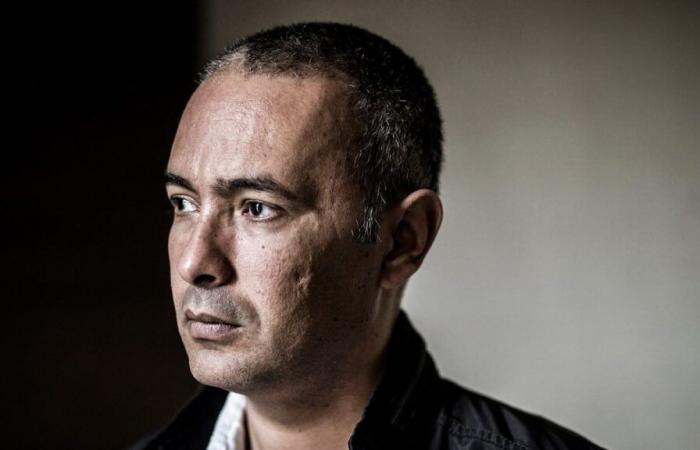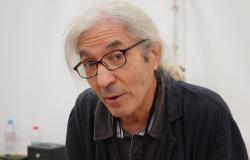Camel DaoudAlgerian writer, and French for not long, won the Goncourt Prize on Monday, November 4, the most important French and French-speaking literary prize, and one of the most prestigious in the world. The event is anything but banal.
Daoud won an award for his novel Houris. He is the first Algerian to be awarded this prize awarded for 120 years to the behemoths of French-speaking literature. Mohamed Dib, Mouloud Mammeri, Mouloud Feraoun, Malek Haddad or Assia Djebbar, as monumental as they were, did not have this honor.
He is also only the third North African and African writer to obtain it, after the Moroccans Tahar Ben Jelloun in 1987 and Leila Slimani in 2016.
The child from Mostaganem, near Oran, in western Algeria, will now see his name forever enthroned in the Goncourt list alongside those of illustrious writers of this century and the one that precedes it, Marcel Proust, Alphonse de Chateaubriand, André, Malraux, Simone de Beauvoir, Amin Maalouf…
Paradoxically, the novel is neither published in Algeria nor translated into Arabic and the distinction of its author does not arouse the enthusiasm in his country that it should. The fault is undoubtedly the numerous controversies, positioning and misunderstandings, sometimes excesses which have marked the career of the fifty-year-old writer. An atypical journey, admired, criticized, which in any case does not leave one indifferent.
“I don't know where the story begins, I don't know where it will end. But for now, it's a great story.“, reacted Daoud in Nouvel Observateur after the announcement of his victory.
Kamel Daoud was born in Mesra, Mostaganem, in 1970. After scientific studies, he moved to literature, through the back door of journalism. He became known for his caustic, sometimes acerbic columns in Le Quotidien d'Oran, of which he was editor-in-chief for many years. His career took on another dimension when he began writing for renowned French media, including Le Point. In his chronicles as in his novels, Daoud has something special, in addition to his undeniable talent: he approaches religious matters without taboo, with numerous excesses and amalgamations.
Another paradox, the journalist-writer was an Islamist Salafist until he was 18. In 2014 he was the subject of a first fetwa calling for his death, issued by an Algerian Salafist imam.
Kamel Daoud, an undeniable talent and a career punctuated by controversies
The writer began to be less popular in Algeria from 2016, when he began to truly indulge in excess and confusion in the columns and on the sets of the French media.
His first major slip-up – at least that is how he is perceived by his compatriots – was to attribute in Le Monde in January 2016 the attacks against women in Cologne (Germany) to a “sick relationship with woman, body and desire” which he generalized to all the youth of the Arab and Muslim world.
Kamel Daoud will not stop there. It is the role of a writer to break away from stereotypes, even if it means provoking and shocking, but Daoud may have overused it. If no one can deny him the right and freedom to stand out from the Algerian Popular Hirak of 2019, many criticize him on the other hand for adjusting his positions to those of French right-thinking, or even a booming far-right , on subjects which, a priori, have nothing in common, Islam, the Algeria-France memorial dispute and especially Palestine. Moreover, we never hear him denounce Israeli crimes in Gaza.
The reputation now sticks to him like a label, beyond Algeria and France. “Kamel Daoud's fascination with the far-right“, headlines the French media Orient 21 a long article listing the many controversial positions of the Algerian writer.
In Algeria, his critics are convinced: it is these positions which opened to Kamel Daoud the doors of the most prestigious French media and literary salons. And who closed those of his country to him. A few days before triumphing at Goncourt, the writer was told that he and his novel, which will be awarded an award, are unwanted at the Algiers International Book Fair.
Is Le Goncourt attributed to Houris, which recounts a drama of the decade of terrorism in Algeria, therefore a “political price“? He is even »very political“, decides the Nouvel Observateur which underlines, as an additional clue, that the distinction arises”in the context of degraded relations between Paris and Algiers“.
As if to deny nothing, certain titles in the far-right French press, such as the Journal du Dimanche, exalt the day after Goncourt.
Finally, there remains this truth that it would be dishonest not to underline: angel or demon, whether or not he owes something in his rise to his positions, Kamel Daoud is a talented writer.
He has written nearly ten novels and short stories and won as many literary prizes, including a first Goncourt already in 2015, that of the first novel for “Meursault, counter-investigation“, a sublime rewriting of”The stranger” d’Albert Camus.






